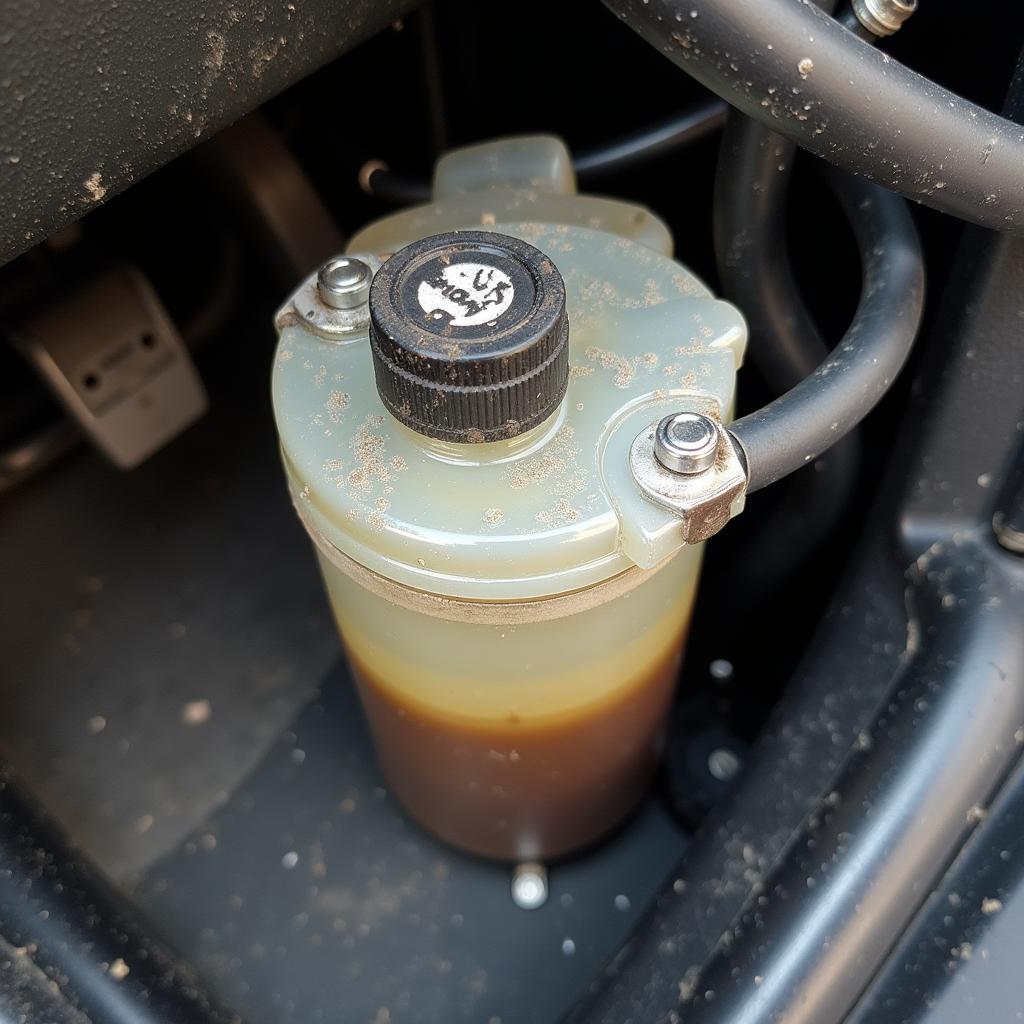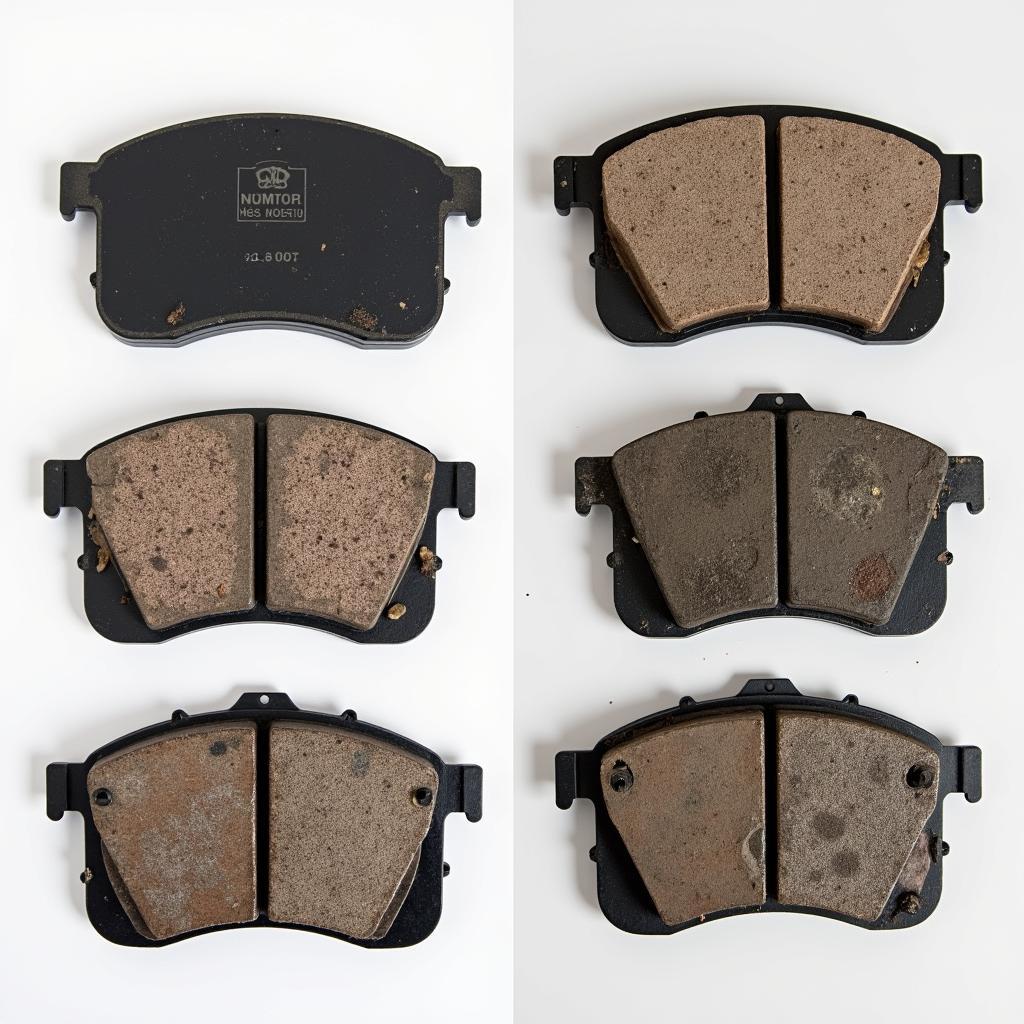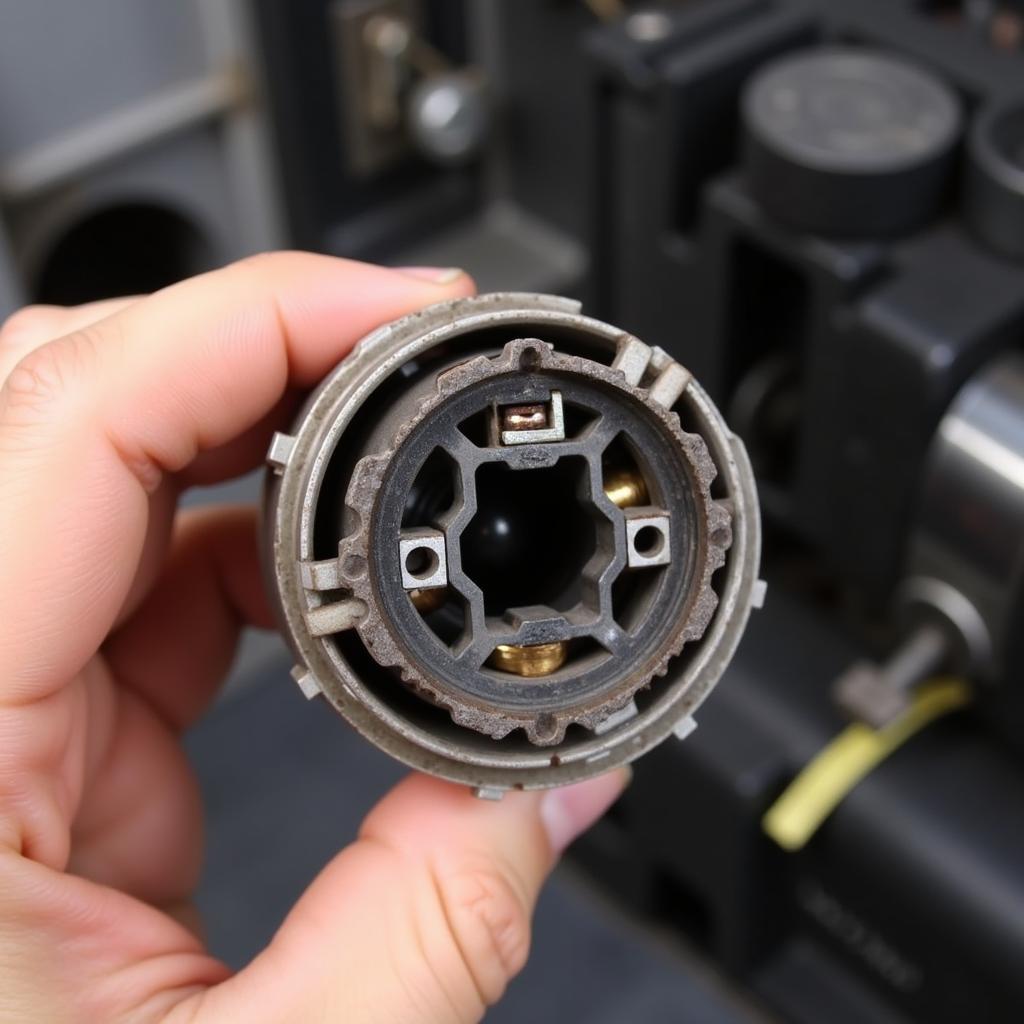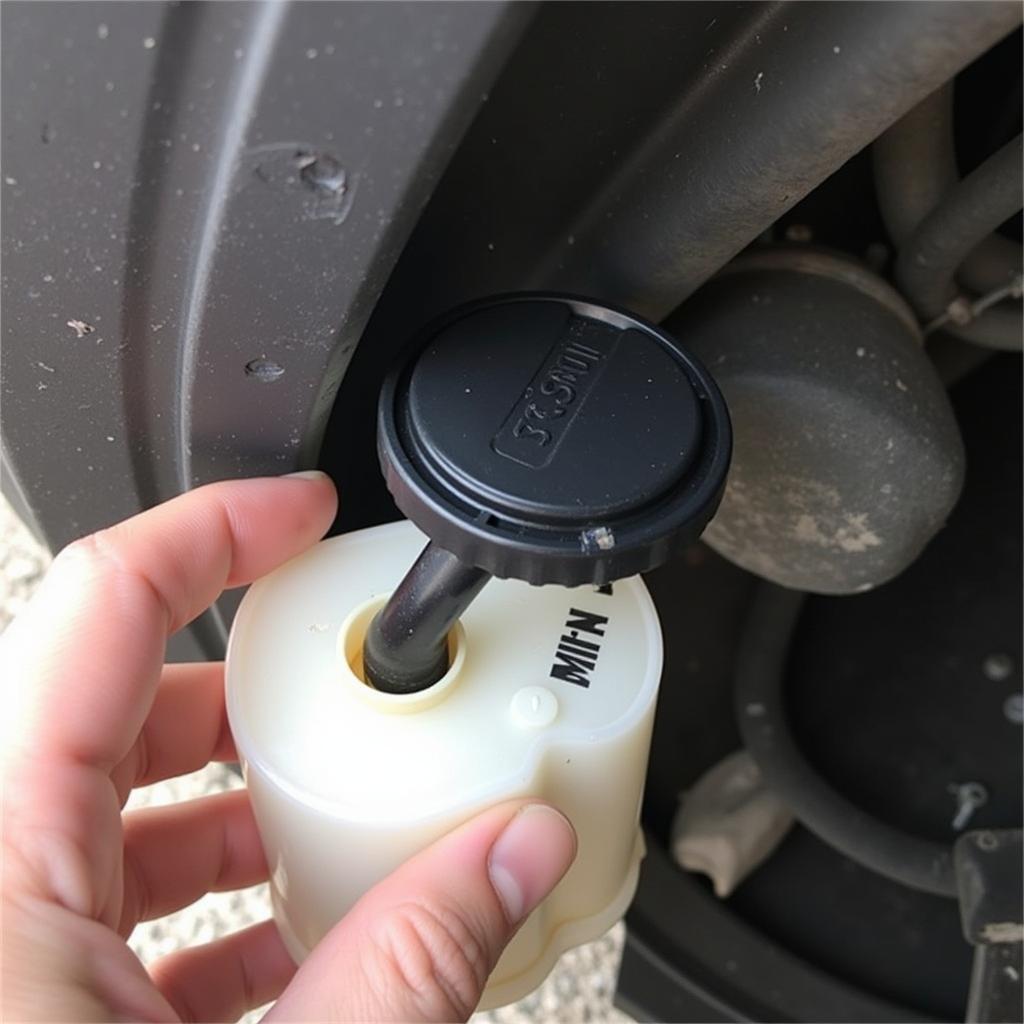The brake warning light on your Mercury Grand Marquis is a crucial safety feature, designed to illuminate if there’s an issue within your braking system. Ignoring it could lead to dangerous driving conditions and costly repairs. This article explores common reasons behind the illuminated warning light and provides potential solutions to help you get back on the road safely.
Understanding Your Brake Warning Light
The brake warning light, often a red circle with an exclamation mark or the word “BRAKE,” serves multiple purposes. It activates during vehicle startup as a bulb check, illuminating briefly before switching off when the engine starts. However, if the light stays on or flickers while driving, it signifies a problem requiring immediate attention.
Common Causes of a Lit Brake Warning Light
Several issues can trigger the brake warning light in your Mercury Grand Marquis:
1. Low Brake Fluid Level
 Low Brake Fluid Level
Low Brake Fluid Level
The most common culprit is low brake fluid, indicating a leak or worn brake pads. Brake fluid operates your hydraulic braking system, and a drop in its level can significantly reduce braking efficiency.
2. Worn Brake Pads
 Worn Brake Pads
Worn Brake Pads
Your Mercury Grand Marquis is equipped with wear indicators on the brake pads. These indicators are small metal tabs that make contact with the rotor when the pads wear thin, creating a high-pitched squealing sound, and activating the warning light.
3. Faulty Brake Light Switch
 Faulty Brake Light Switch
Faulty Brake Light Switch
The brake light switch, positioned behind the brake pedal, signals the brake lights to illuminate when you depress the pedal. A malfunctioning switch can disrupt this signal, potentially impacting your brake lights and triggering the warning light.
4. ABS Issues
Your Mercury Grand Marquis features an Anti-lock Braking System (ABS), designed to prevent wheel lockup during hard braking. A malfunction within the ABS module, wheel speed sensors, or related wiring can trigger the warning light.
Troubleshooting the Brake Warning Light
Before attempting any DIY repairs, ensure you have the necessary skills and tools. Working with brake systems can be dangerous, and seeking professional assistance is recommended for complex issues.
- Check Brake Fluid Level: Safely park your car on a level surface and pop the hood. Locate the brake fluid reservoir (consult your owner’s manual if unsure). The reservoir will have “MIN” and “MAX” markings. If the fluid level is below “MIN,” add the appropriate brake fluid (DOT 3 or 4, as specified in your manual) to bring it to the “MAX” line.
- Inspect Brake Pads: If you suspect worn brake pads, it’s crucial to have them inspected by a qualified mechanic. They can assess the remaining pad thickness and advise on replacement if needed.
- Examine Brake Light Switch: If you notice inconsistent brake light behavior, the brake light switch might be faulty. While this is something you can replace yourself, it’s best to consult a mechanic for diagnosis and repair.
“Addressing brake issues promptly is crucial for your safety and the longevity of your vehicle,” advises John Miller, a seasoned automotive technician with over 20 years of experience. “Ignoring a lit brake warning light could lead to more severe damage and expensive repairs in the long run.”
When to Seek Professional Help
If you’re uncomfortable with DIY repairs or the brake warning light remains illuminated despite checking the brake fluid and inspecting for visible leaks, it’s crucial to seek help from a qualified mechanic. They have the expertise, tools, and diagnostic equipment to identify and rectify the issue safely and effectively.
Conclusion
The brake warning light in your Mercury Grand Marquis should never be ignored. Understanding its potential causes can help you address the issue proactively, ensuring your safety and the optimal performance of your vehicle. However, it’s crucial to remember that working with brake systems requires expertise. If in doubt, always seek professional help.


